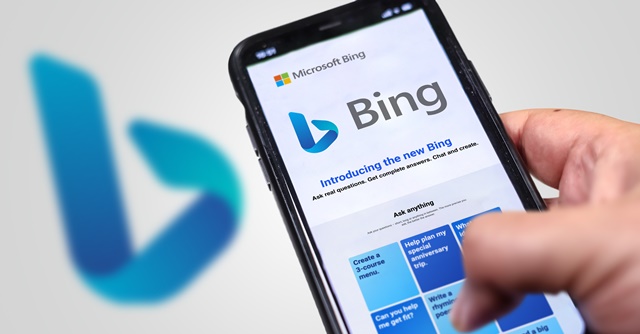
AI-powered Bing comes to SwiftKey keyboard


Microsoft has integrated AI-powered Bing with the SwiftKey app offering chat, tone, and search capabilities to smartphone users on the mobile keyboard.
With chat, users can get detailed answers to queries, while tone will suggest words in text messages and emails based on the tone of the conversation. The search feature will allow users to search the web from the keyboard.
Launched in February, AI-powered Bing is based on OpenAI’s latest generative AI model GPT-4, and has been customised for search. It is currently available under preview on multiple Microsoft apps including Bing, Edge, Skype, and Microsoft Start. Microsoft also announced that it’s enhancing AI’s capabilities and access to these apps too. For instance, on Skype, every participant in a group can chat with Bing AI even if only one person in the group has access to the preview.

According to Microsoft, Bing AI in SwiftKey will be available in all markets where the new Bing is available. The search capability can be used by anyone, however, to use tone and chat capabilities users will have to sign in with their Microsoft account that has been approved to access Bing Preview. The big tech firm said in February that it has received over a million requests from the public who want to be a part of the limited preview.
SwiftKey is a popular keyboard app with millions of users and is available on both iOS and Android. It was also one of the first keyboard apps to offer AI-based text predictions back in 2016.
The popularity of ChatGPT and the subsequent rollout of AI-powered Bing has helped Microsoft revive the search engine battle with Google. Microsoft claims Bing search now has 100 million daily users and has processed more than 100 million chats.

Google is also preparing to roll out similar AI-powered features in Google Search.
Last month, Google also announced limited access to its Language Model for Dialogue Applications (LaMDA) based AI chatbot Bard, which is the direct rival to ChatGPT.
To be sure, downloads of the Bing app have grown eight times globally since the rollout of Bing AI, while downloads of Google apps have declined by 2% during the same time, according to app research firm Data.ai (formerly App Annie).

Microsoft is also one of the key investors in OpenAI and has invested billions of dollars in the development and commercialisation of its various generative AI models. Apart from Bing AI, Microsoft is also using OpenAI’s Codex to power GitHub’s AI code-writing assistant.
